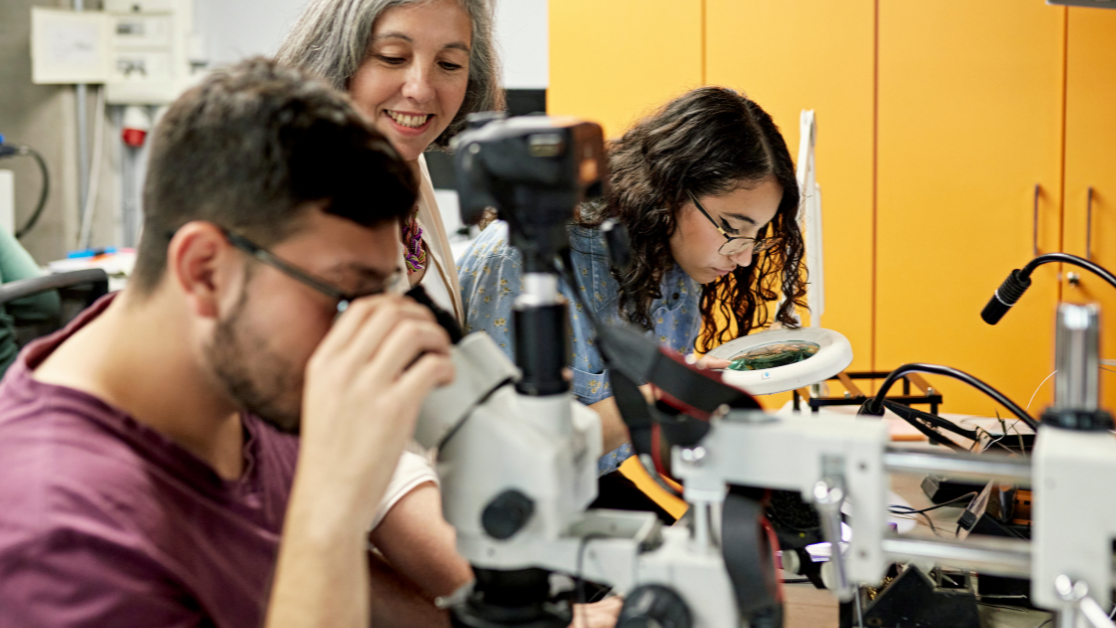At this year’s SXSW EDU, I joined a panel conversation with Mike Flanagan of Mastery Transcript Consortium, Tim Taylor of America Succeeds, and moderated by Courtney Reilly of Skillsline, to weigh in on a very timely topic: the need for employers to be able to look beyond the college degree as they vet and verify the competency and job-readiness of prospective workers in a paradigm. While it’s increasingly accepted that the norm of a degree as the primary signifier of readiness for a “good” job is on its way out, the ability to have something reliable and meaningful in its place is undeniably a more challenging part of the conversation. But it’s something that needs a remedy, because more people – including non-degree-holders, need the ability to get into good jobs. And because today, there are more than two job openings for every unemployed worker in the U.S., indicating a vastly unnecessary mismatch between potential talent and filled jobs.
It’s understandable that we’re in this place. Degrees have long been used as a proxy for the skills needed to effectively perform a job, and a reliance upon them is essentially baked into the hiring landscape for white-collar work. Yet, more and more employers are saying that, “No, this piece of paper is actually not a strong guarantee that someone can perform the job.” Backing that up, we see – as the panel host reminded us – that over 80% of employers today believe skills are a better determinant of job fit than a degree, and over 70% don’t think degrees are a good proxy for skills. So, why do 50% of them still hire from degree programs? What needs to change? We discussed a lot on this panel, but here’s what I believe is at the crux of our shared vision for change and for the future:
Kids need opportunities to learn about what’s out there, what’s not out there yet, and to build durable skills in school.
So, the answer to the question “What can employers do to vet non-degree holders?” is actually something like, “We’re working to ensure that you’re more readily able to do so!”
Right now, the K-12 environment is still rife with a belief that college is the only pathway that matters, and therefore, much of what so many kids are learning is geared towards test-taking and eventual college admission. It’s often rote learning, it’s often not very dynamic, and it’s largely missing out on a whole world of experiential and work-based learning that can help kids build a more rounded skill set that will, right out of the gate, be attractive to an employer. But we can also open doors for kids when we instill in them a sense of wonderment about what their future could look like if they take a road less traveled.
Tim hit the nail on the head, quoting an employer who said, “[In school], they give kids all the information they’ll ever need to solve the problems they’re asking them to solve. And as soon as they get into the workforce, they’ll never have all the information they need to solve the problem that they’re trying to solve.”
Kids need chances to think bigger and in a more critical way about work and about their place in the adult world. They need chances to say, “Actually, these are the problems I want to solve.” The status quo right now, though, is that most kids aren’t leaving school with any kind of employable skill set, because that work and experiential piece is missing. So, understandably, employers say to young people with no degree, “No, we don’t want you yet. We need something tangible that shows that you’re an adult, you’ve done some hard work, and you’re ready to hit the ground running.”
When we give kids chances to experience things like project-based learning, internships, apprenticeships, and to have work experience before they leave school, we prime them to figure out what they like, what they hate, what they’re good at. We give them chances to start building a highly employable foundation of durable skills and accomplishments. But all of this starts with awareness. Educators, parents, and employers involved in work-based learning experiences for young people can help by ensuring kids know what skills they will even need and how they can build them, and that they should get on a pathway to adulthood starting early. And pathway really is a key word here.
Beyond giving kids those experiences, employers and educators alike need a shared vernacular for how they talk about and explain non-degree pathways to kids and amongst themselves. Kids need to know that non-degree does not equal less-than, but far too many still think that way. They need help mapping their vision to a pathway, along with an understanding of what will be required to meet their goals and become financially sufficient adults. At ASA, we’re working hard on the policy front to make sure that can happen in more places.
To sum it all up? Employers can and should be able to look at kids coming out of non-degree pathways and vet them as prospective workers. Before that can happen in a really cohesive way, though, we – those working in support of the other side of the graduation stage – have a lot of work to do in order to ensure kids and their support system of caring adults understand and feel confident in their choices, are equipped to act on them, and empowered – through an array of work-based experiences – to go after their unique dreams.
You can check out the full panel session right here!





